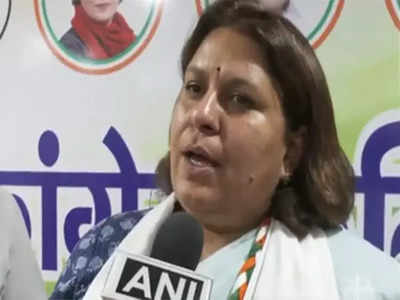
Congress spokesperson Pawan Khera expressed disappointment with the announcement, pointing out the discrepancy between the government's statements and actions. "We were expecting that dates for all four Assemblies would be announced because only yesterday we heard the Prime Minister loudly shouting that there should be ‘One Nation, One Election’. Now if they can’t do four Assemblies together, then why do they give these hollow slogans?" Khera said in a statement to the press.
The criticism comes in light of the Election Commission's decision to announce the election dates for only two states, Jammu and Kashmir, and Haryana. This move has led to speculations about the central government's intentions and the feasibility of the 'One Nation, One Election' policy. The Congress party's response highlights their concerns over what they see as inconsistency in the government's approach to electoral reforms.
The concept of 'One Nation, One Election' has been a contentious issue in Indian politics, with the ruling Bharatiya Janata Party (BJP) advocating for simultaneous elections to the Lok Sabha and state legislative assemblies. The idea, proponents argue, would reduce the frequency of elections, decrease government expenditure, and minimize the disruption of governance caused by the electoral process.
However, critics, including opposition parties like Congress, have raised concerns about the practicality and implications of such a policy. They argue that simultaneous elections could undermine the federal structure of India, concentrate power in the hands of the central government, and marginalize regional parties. The latest developments have only intensified this debate.
Friday's announcement also reignited discussions on the status of elections in Jammu and Kashmir. The region, which was stripped of its special status under Article 370 in August 2019 and bifurcated into two Union Territories, has not held assembly elections since the abrogation. The absence of an elected government in Jammu and Kashmir has been a point of contention, with opposition parties accusing the central government of delaying the electoral process in the region.
Congress leader P. Chidambaram echoed these sentiments, questioning the delay in holding elections in Jammu and Kashmir. "The people of Jammu and Kashmir have been waiting for an elected government for years. The delay is unjustified and raises serious concerns about the government's intentions," Chidambaram stated, emphasizing the importance of restoring democratic processes in the region.
The Election Commission, however, defended its decision, citing logistical challenges and the need for adequate security arrangements as reasons for the staggered election schedule. The Commission's officials have maintained that elections in Jammu and Kashmir will be held as soon as the situation on the ground is deemed conducive.
Despite these assurances, the Congress party remains unconvinced, with its leaders calling for a more transparent and consistent approach to election scheduling. The party's criticism of the Modi government is expected to feature prominently in the run-up to the assembly elections, as it seeks to challenge the BJP's narrative and policies.
As the election campaigns gain momentum, the issue of 'One Nation, One Election' is likely to remain a focal point of political discourse, with both supporters and detractors of the idea making their cases to the electorate. Congress's latest statements signal its intent to scrutinize the government's actions closely and to hold it accountable for what it views as discrepancies between rhetoric and reality.
The assembly elections in Jammu and Kashmir and Haryana are anticipated to be closely watched, not only for their immediate political outcomes but also for their implications on the broader debate surrounding electoral reforms in India.
